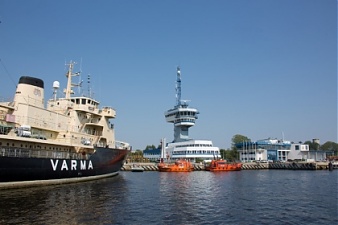Good for Business, Latvia, Legislation, Port, Transport
International Internet Magazine. Baltic States news & analytics
Friday, 19.04.2024, 21:17
Freeport of Riga ready for ice navigation
 Print version
Print version |
|---|
| Photo: rop.lv |
In accordance with Cabinet Regulations, winter navigation in all Latvian ports lasts from 15 December to 15 April. Winter navigation means that ship owners have a duty to prepare ships for safe navigation at negative air temperature during this period. Ships must have equipment for freeing the ship’s hull from ice-cover. The layer of ice that forms as a result of wind and spray at negative air temperature changes the balance of the ship and poses a serious threat to its safety. In turn, the decision on the commencement of ice navigation in the Port of Riga and the Gulf of Riga, as well as on the necessity of icebreakers, is adopted by the captain of the Port of Riga taking into account the situation in the port and the gulf.
Artūrs Brokovskis: “Vessels operating in the Port of Riga are prepared for winter navigation, and the port is ready for complicated ice navigation conditions. Icebreaker services in the navigable area of the Port of Riga itself are necessary only in rare cases. As a result of constant ship traffic, a thick layer of ice practically never forms; moreover, tugs operating in the Port of Riga are suitable for working under ice conditions and can also fulfil the ice-breaking function. Under ice conditions, icebreaker services are necessary in the Irbe Strait and the Gulf of Riga in order to help ships make their path to the Port of Riga. Ice navigation conditions, the duration of the season and the load of icebreakers in the Gulf of Riga are very difficult to predict and depend on not only air temperature but also wind direction and other conditions.”








 «The Baltic Course» Is Sold and Stays in Business!
«The Baltic Course» Is Sold and Stays in Business!

